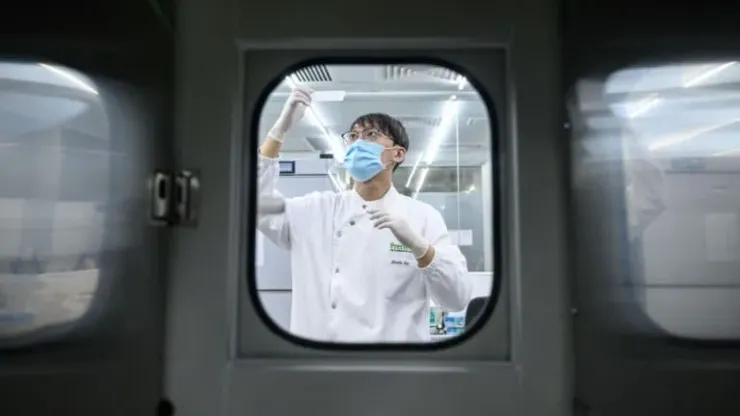Hong Kong (AFP) – The thousands of coronavirus tests that have enabled the Premier League to return this week have an unlikely source — a little-known start-up in Hong Kong.
Prenetics/Circle DNA is playing a key role in rebooting the world’s most popular football league after landing a £4 million ($5 million) contract to screen its players and staff.
The company has set up stations at each of the Premier League’s 20 clubs, carrying out testing twice a week — using partner laboratories in Britain — in the run-up to Wednesday’s return to play.
So far, 8,687 deep-throat and nasal swab tests have turned up 16 cases, with Tottenham Hotspur, Norwich City, Bournemouth, Watford and Burnley all revealing positive results.
The screening, with results available within 48 hours, has been a major factor in the return of the Premier League, whose global appeal is exemplified by its huge following in Asia.
“We’re very proud to be able to do this role,” co-founder and CEO Danny Yeung told AFP at the company’s office-and-laboratory complex in Hong Kong.
“I think our entire team will feel very proud when the Premier League comes back to action.”
The Premier League contract was a departure for the Hong Kong firm, whose core business is carrying out DNA tests for consumers keen to know their health risks for diseases such as cancer.
Discussions began about two months ago, after the pandemic had halted professional sport worldwide and as competitions searched for ways to restart safely.
Prenetics/Circle DNA is now in talks with other major competitions, including Spain’s La Liga. COVID-19 looks likely to linger as a hazard for professional sport until a vaccine is available.
“Right now we are talking to all the major sports associations,” said Yeung.
“These are your rugbys, your crickets, racing, et cetera. So you name it, I think we’re speaking to a lot of these major organisations.”
Yeung’s company is also offering individual tests to people in Hong Kong on a not-for-prof it basis, charging HK$985 ($127) a time.
“For us, we’re treating COVID-19 not really from a profit perspective, but because we do have the responsibility to do something for COVID,” he said.
“And certainly if the community gets back a little bit to normal, it’s better for everyone involved — the community, our employees and our future business.
“Ultimately we feel that if we are to fight COVID it’s not one company that can do this,” Yeung added.
“It needs to be a collaboration between the public and private sector and multiple companies need to pull together to have a solution.”
200+ Channels With Sports & News
- Starting price: $33/mo. for fubo Latino Package
- Watch Premier League, Women’s World Cup, Euro 2024 & Gold Cup
The New Home of MLS
- Price: $14.99/mo. for MLS Season Pass
- Watch every MLS game including playoffs & Leagues Cup
Many Sports & ESPN Originals
- Price: $10.99/mo. (or get ESPN+, Hulu & Disney+ for $14.99/mo.)
- Features Bundesliga, LaLiga, Championship, & FA Cup
2,000+ soccer games per year
- Price: $5.99/mo
- Features Champions League, Serie A, Europa League & Brasileirāo
175 Premier League Games & PL TV
- Starting price: $5.99/mo. for Peacock Premium
- Watch 175 exclusive EPL games per season






